2017 Events
NO TICKET or RSVP IS NECESSARY for the Nov. 16 event.
Nov. 16 is the film-showing, with comments from Holocaust survivor.
Dec. 3 is the concert (more info below).
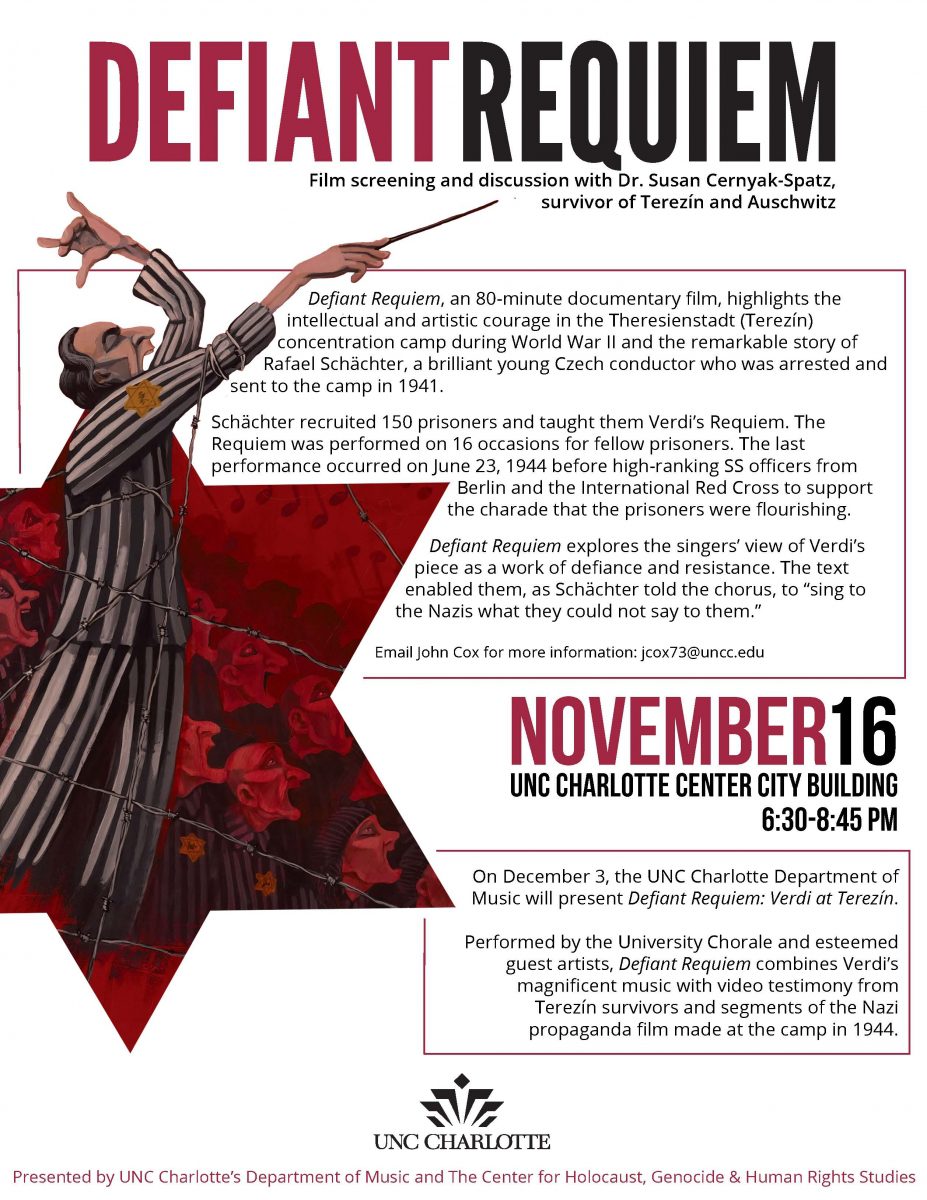
PERFORMANCE OF THE “Defiant Requieum,” led by its creator, Maestro Murry Sidlin, on December 3, 2017
To buy tickets for the concert
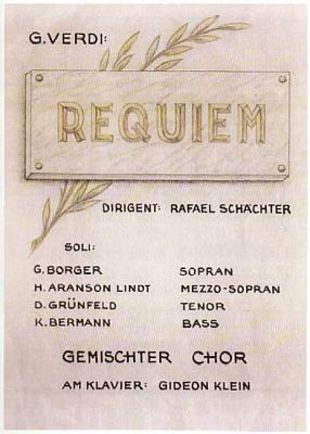
Cynthia Enloe: “All Men are Not Warriors, All Women are Not Victims:
What a Feminist Curiosity about War Reveals”
Thursday November 2 2:00 – 3:15 CHHS 376 (UNC Charlotte campus)
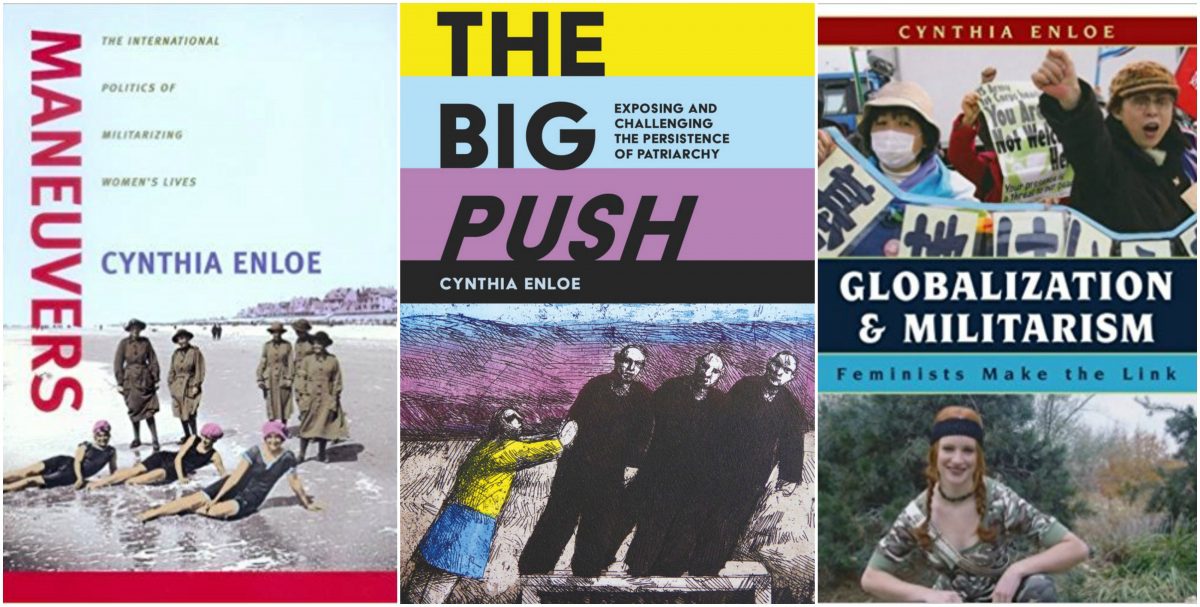
Professor Enloe’s fifteen books include Maneuvers: The International Politics of Militarizing Women’s Lives (2000), Nimo’s War, Emma’s War: Making Feminist Sense of the Iraq War, (2010), The Real State of America: Mapping the Myths and Truths about the United States (co-authored with Joni Seager; 2011, revised 2014), Bananas, Beaches and Bases (new edition, 2014). Her new, updated edition of Globalization and Militarism: Feminists Make the Link was published in 2016. Professor Enloe’s newest book is The Big Push: Exposing and Challenging Persistent Patriarchy (2017).
Professor Enloe’s feminist teaching and research have explored the interplay of gendered politics in the national and international arenas, with special attention to how women’s labor is made cheap in globalized factories (especially sneaker factories) and how women’s emotional and physical labor has been used to support many governments’ war-waging policies—and how diverse women have tried to resist both of these efforts. Racial, class, ethnic and national identity dynamics, as well as ideas about femininities and masculinities, are common threads throughout her studies.
Sponsored by UNC Charlotte’s Office of Undergraduate Education, Department of History, and Center for Holocaust, Genocide & Human Rights Studies.
EARLIER THIS YEAR
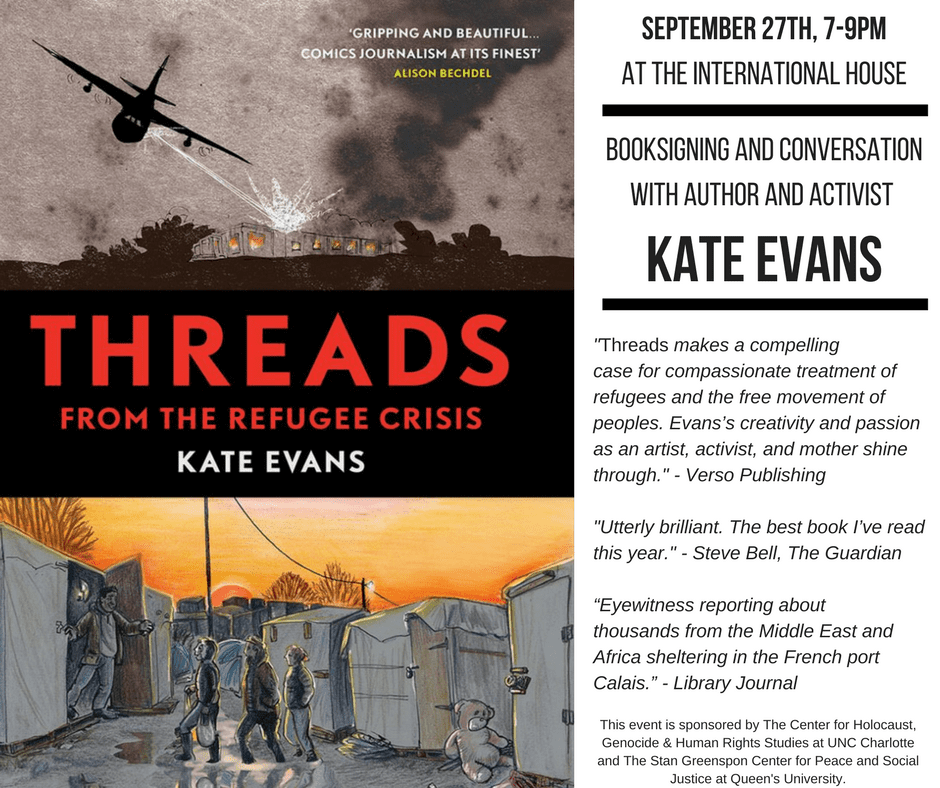
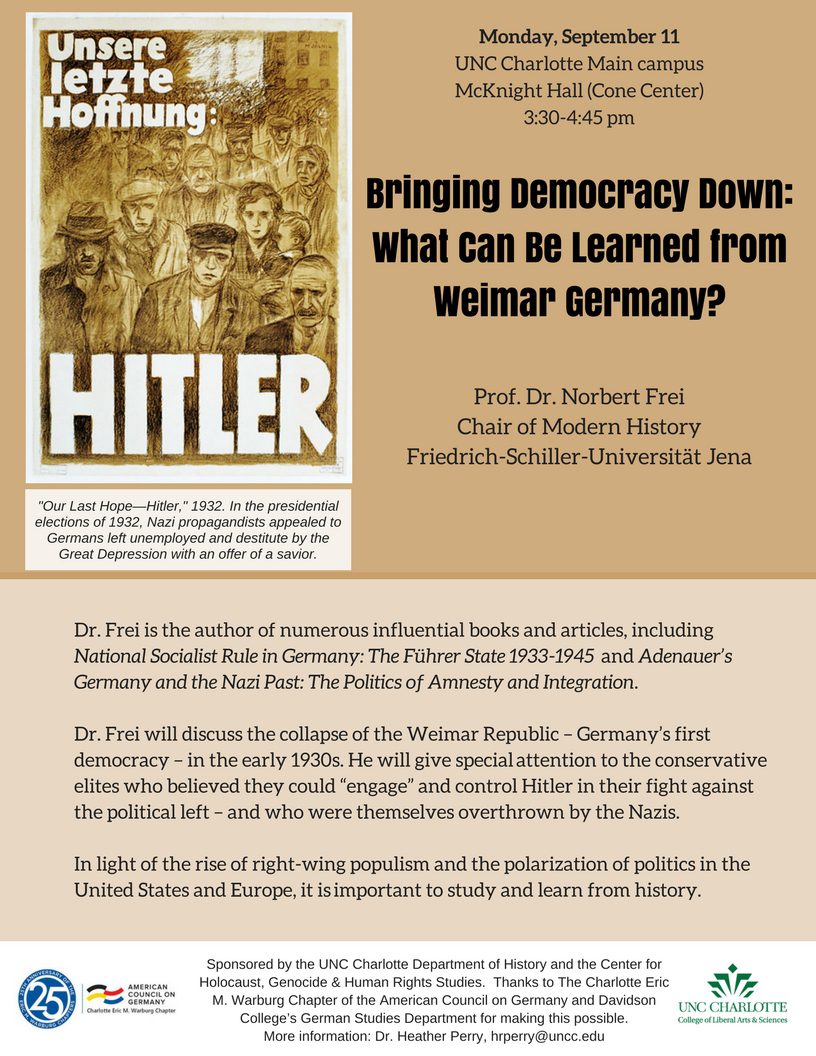
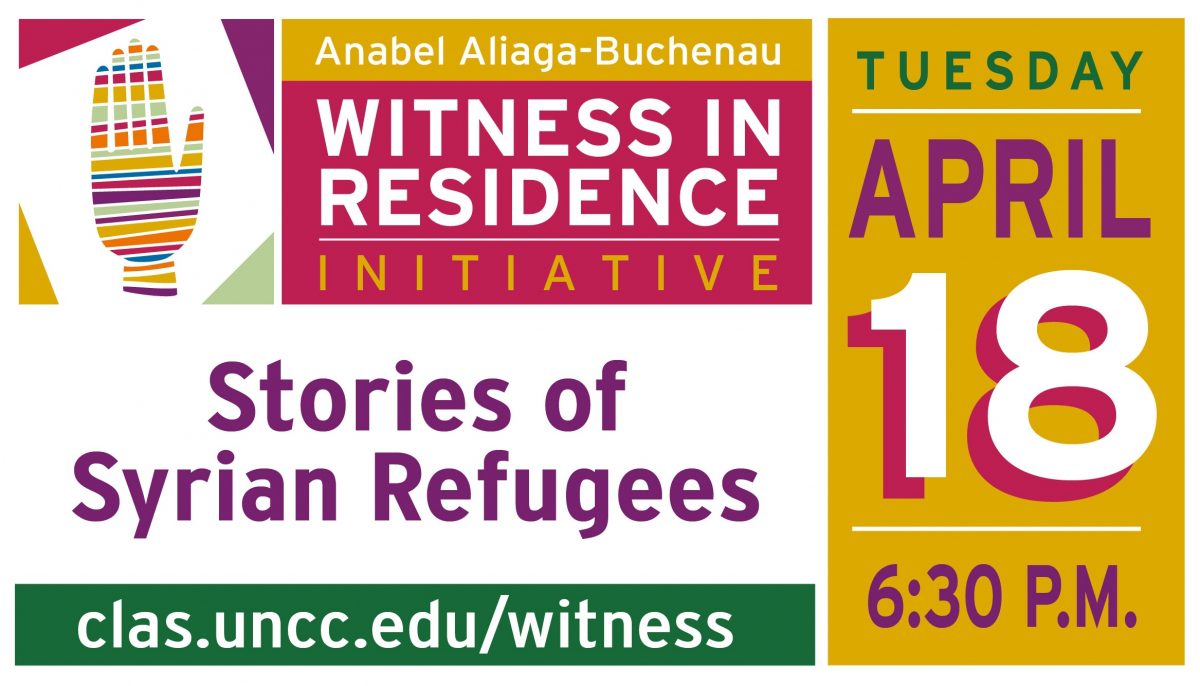
Syrian refugees Zubair Rushk and Amira Elamri will share their stories of life in Syria and refugees’ long road to building a life in the United States during a public conversation on Tuesday, April 18, at UNC Charlotte Center City.
Even before the current civil war began, Syria was torn apart by regional alliances and differences in culture, history and language. After being imprisoned in his native country for teaching the Kurdish language and history to Kurdish children, Rushk sought asylum in Lebanon. He was selected in 2010 for the U.S. refugee resettlement program and now makes his home in Cary, NC.
Amira Elamri, her husband and their two children escaped the Syrian civil war in 2013. After nine moves within Syria and one to Lebanon to escape violence, they arrived in the U.S. with tourist visas. The couple now have work visas and live in the Boston area, awaiting approval of their Asylum applications. Ms. Elamri teaches in a Muslim preschool.
Doors open at 6:00 p.m., and the program will begin at 6:30 p.m. The program is open to the public without charge, but registration is requested. Register here. Information on obtaining a complimentary parking pass will be sent shortly before the event to those who are registered.
Dr. Charles Kurzman, sociology professor and co-director of the Carolina Center for the Study of Middle East and Muslim Civilizations at UNC Chapel Hill, will provide historical context for the conversation. Poet Susan Shaw Sailer, English professor emerita of the English Department at West Virginia University in Morgantown, will read a new poem about Syrian refugees.
The conversation is a part of the College of Liberal Arts & Sciences’ Anabel Aliaga-Buchenau Witness in Residence Initiative. Thanks to generous donors from the community, the initiative provides scholarships for students’ study-abroad experiences related to human rights and social justice. It also supports the annual Witness in Residence Program at UNC Charlotte, bringing to the campus and the community individuals who have personally witnessed an important world event from within that event.
Visiting scholar from Cuba: Daysi Rubiera Castillo on Afro-Cuban Women, Past and Present

“Migration, asylum and belonging: an old German issue in a changing world”
Lecture and dialouge with Dr. Patrice Poutrus, University of Vienna’s Institute for Contemporary History
Wednesday April 12, 2:00 – 3:15 pm, CHHS 281
This lecture will examine the developments of migration and asylum policy in the two post-war German states from the end of late 1940s to the early 1990s, focusing particularly on West Germany. We can see how changes in constitutional law, migration policy, and political culture were accompanied and influenced by migration itself. Looking at how public and political opinions on the issues of migration and asylum were shaped can help us to better understand the nature of subsequent developments in public opinion and asylum policy including their consequences for the refugee crisis of 2015 to present.
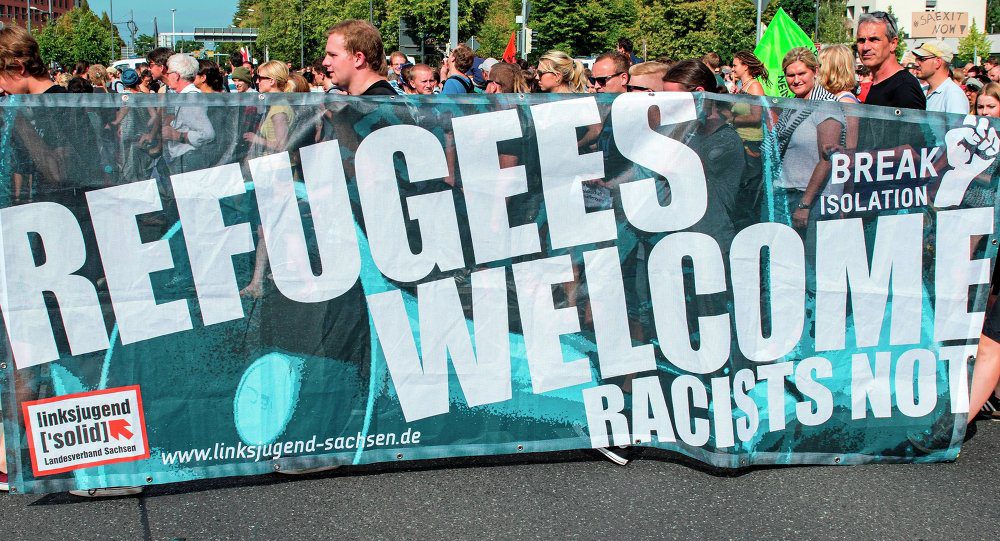
Patrice G. Poutrus is a member of the German Research Foundation’s “Foundations of Refugee Research Network.” He served as senior fellow at the Institute for Contemporary History at the University of Vienna and at the Simon-Wiesenthal – Institute for Holocaust Studies, and taught at the Martin-Luther
University (Halle) and the Free University (Berlin). He is author of a number of works on migration and asylum in postwar East and West Germany and on the history of “Communism” in East Germany.
Sponsored by the Departments of History and of Global Studies and its Center for HGHR Studies; more information: Dr. Jill Massino, jmassino@uncc.edu
“The Right to the City: Global Human Rights and Local Activism”
Thursday April 6, 3:30 – 4:45 pm, Rowe 130
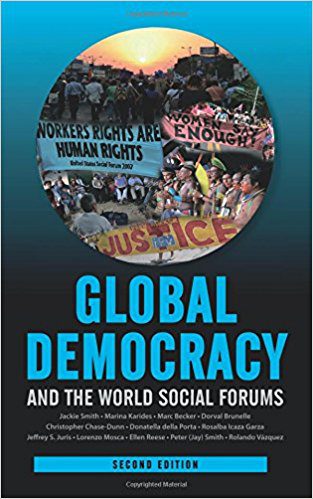
Human rights are under increased threats as the world faces continued challenges of economic insecurity, financial volatility, climate change, and the rise of exclusionist movements. Although news headlines have focused on the rise of exclusionary and racist movements, there is evidence of significant popular mobilization around more inclusive, human rights claims. Because these movements challenge basic elements of the world capitalist system, they tend to remain marginal to mainstream media and scholarly discourses.
This talk explores the emergence of translocal networks of human rights advocates who call for place-based human rights in communities around the world. Amid new threats to human rights in Western Democracies, there are also rising demands for “the right to the city,” as people seek to reconcile the tensions between global and local politics and between economic globalization and community survival.
Jackie Smith will provide illustrations from this emergent Right to the City movement in Pittsburgh and across the United States and consider its implications for understandings the global dynamics of human rights.
Smith is a sociologist at the University of Pittsburgh who specializes in global studies and transnational social movements. She is the author of numerous books on world social movements, social transformation and justice. She currently serves as editor of the Journal of World-Systems Research and is also an advocate for the Open Access movement.
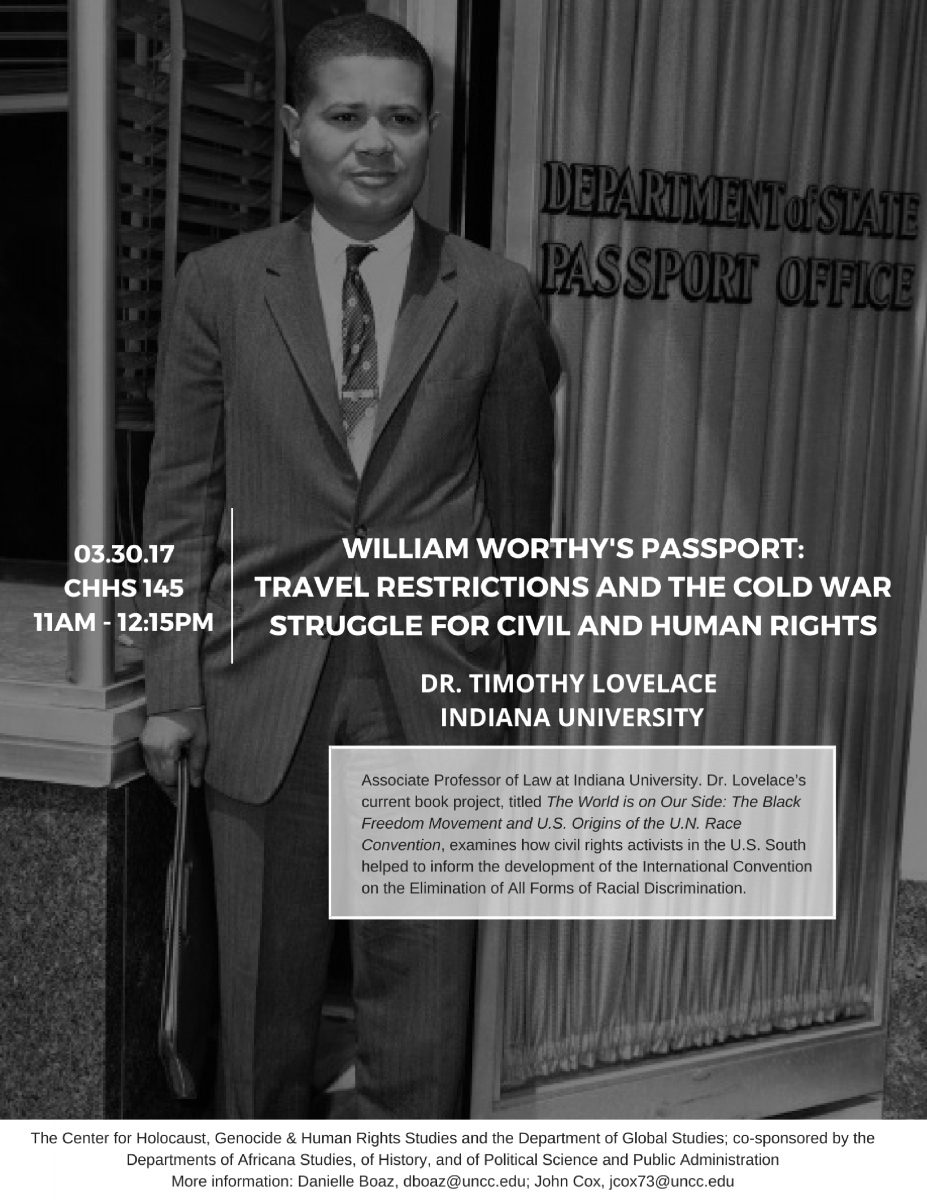
Dr. Lovelace is Associate Professor of Law at Indiana University. His current book project, titled The World is on Our Side: The Black Freedom Movement and U.S. Origins of the U.N. Race Convention, examines how civil rights activists in the U.S. South helped to inform the development of the International Convention on the Elimination of All Forms of Racial Discrimination.
In April 1964 Malcolm X boldly challenged black activists to “expand the civil rights struggle to the level of human rights” and “take the case of the black man in this country before the nations in the U.N.” But nearly two years earlier, William Worthy, black America’s star foreign correspondent, had taken his case before both U.S. courts and the United Nations. In 1961 Worthy defied the U.S. travel ban to Cuba to report on racial progress on the island. The State Department had the names of more than two hundred citizens who had violated the travel ban, but federal officials singled out the radical journalist for prosecution, making him the first American convicted of returning to the United States without a valid passport. H. Timothy Lovelace Jr. explores how Worthy invoked the U.S. Constitution and international human rights law to fight his selective prosecution and uses Worthy v. United States to offer fresh understandings of black internationalism in the 1960s.
March 2, 2:00 – 3:15 pm, McEniry 124, UNC Charlotte campus
Pioneering Holocaust historian John K. Roth: “Failures of Ethics: Comprehending Genocide and Atrocity”
Professor Roth is a renowned and prolific scholar of philosophy, religion, and Holocaust Studies. He served as the Founding Director of the Center for the Study of the Holocaust, Genocide, and Human Rights (now the Center for Human Rights) at Claremont McKenna College. Professor Roth has published hundreds of articles and reviews, and authored, co-authored, or edited more than fifty books, including: Approaches to Auschwitz: Ethics During and After the Holocaust; Rape: Weapon of War and Genocide